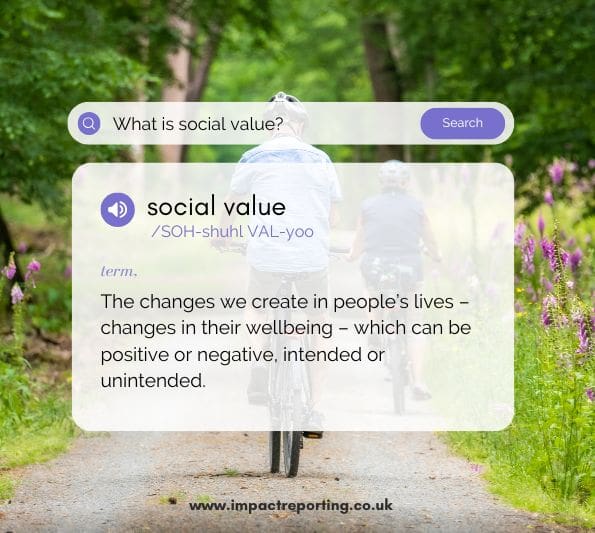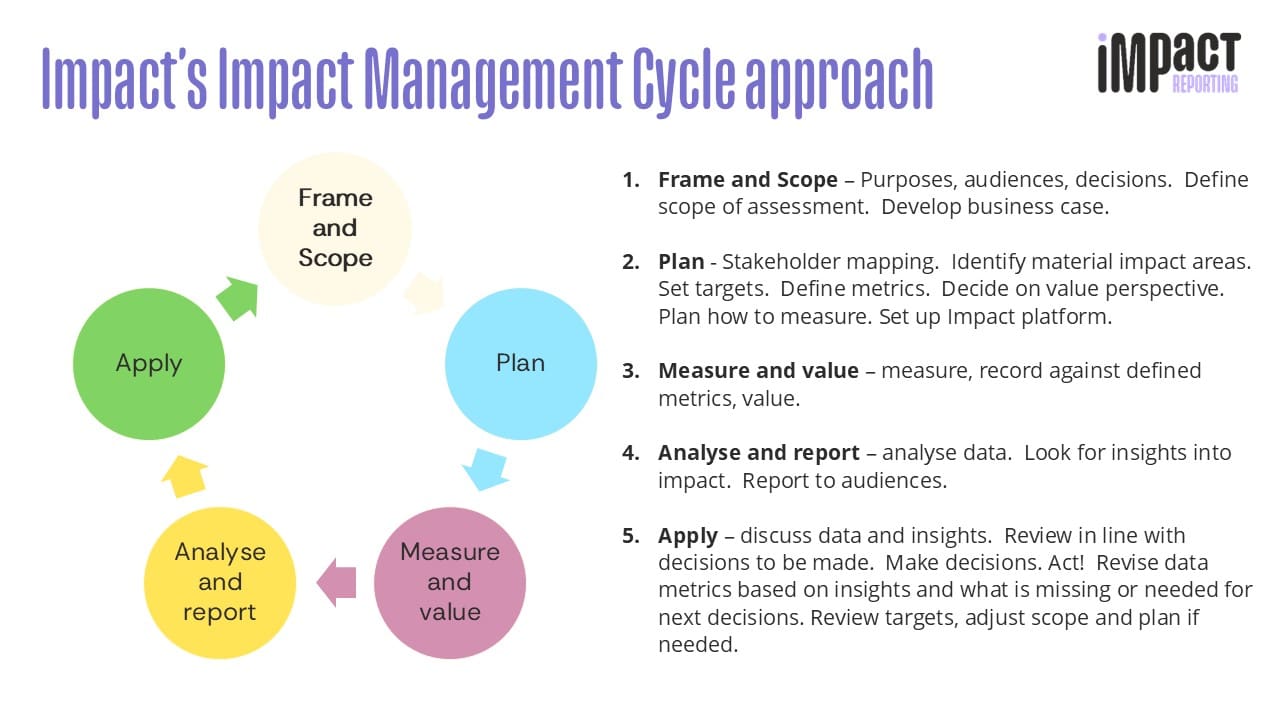Prioritizing Impact Management: A Critical Need
In 2009, Simon Sinek took the world by storm with his TED lecture and Golden Circle Theory, which urged leaders to ask “why” in all they do. Today, this philosophy extends to impact measurement and management.
When it comes to “why” we should prioritise impact management, the blunt truth is: we have no choice.
Why is it important?
The next decade forecasts environmental and societal crises, with climate failure taking centre stage. While the cost-of-living crisis tops short-term concerns over the next two years, biodiversity loss and ecosystem collapse emerge as rapidly deteriorating risks over the next ten. Climate and environmental risks dominate global perceptions, revealing a lack of preparedness if we don’t get better at managing our environmental and social impact as quickly as possible.
Will we see the impact first-hand?
Let’s be realistic. The enormity of these issues can feel distant. Many think, “What difference can I make?” Connecting the dots between minor organisational impacts and global issues seems like tossing a penny into the Atlantic and expecting a splash (it won’t.) But we are not pennies; your business will make a bigger splash than you know.
So, how can we make these genuine threats feel less overwhelming?
First and foremost, we all have a fiduciary duty — it’s in the Companies Act, woven into various business insurance and operational compliance, and it’s a societal expectation. Solid impact management isn’t just a nice to have; it’s a must if you want to continue trading.
The Impact Management Project stresses how social, environmental, and economic impacts are intertwined. Furthermore, the Capitals Coalition talks about risks and opportunities you can gain from managing these intertwined areas, from both a business and a personal perspective.
Individuals and governing bodies are increasingly caring about people and the planet. If your business isn’t on top of it, you risk losing customers and potentially your ability to operate. Without that, sustaining your business becomes a real challenge.
The good news is it’s not all doom and gloom. Yes, the impacts of not prioritising impact management can be devastating. But, it’s not just a case of adapt or die. It’s adapt and thrive. When you fully embrace impact management, the business case is powerful, presenting your business with a myriad of opportunities.
Let’s explore both the risks and opportunities together.
Falling by the wayside
When your business has less of a priority on impact management, you risk:
- Negative outcomes
- Strained relationships
- Operational challenges
- Reputational damage
- HR Issues
- Increased supply chain risk
Consumers are becoming savvier with whom they support and louder against businesses they don’t. To operate irresponsibly opens up Pandora’s box of risk — negative publicity, protests, boycotts, lawsuits, and declining support for current and future operations. Strained community relationships are critical. In a 2023 report, 74% of consumers identify word of mouth as a key influencer in purchasing decisions. That either works in your favour or goes against you.
It’s not just customers you risk damaging relationships with. It’s your staff, current and future, the local community, and the wider supply chain.
Procurement teams look for tenders from companies that monitor impact and can evidence it at various contract points. If you’re not doing this, you won’t stand a chance at being considered for a preferred supplier, or you’ll lose your place in the pecking order as organisations around you tighten their belts.
When actions (or lack thereof) start impacting your community reputation, you create risk around licensing and accreditation. Your workforce can be affected by safety concerns, disengagement, and skill shortages. And with your supply chain, the ripple effect is underperforming suppliers, trust erosion, and a compromised reputation with distributors and retail partners. This oversight poses a threat to business relationships and operational efficiency.
These cracks form early, leading to much more catastrophic issues further down the line. Aligning with sustainable practices is instrumental in managing risks effectively and mitigating the impact of negative externalities, as well as anticipating future policy developments and reducing regulatory risks.
Prioritising impact management
Conversely, when you engage with these risks, the impact on your business is the opposite. But making impact management a priority within your business is more than just about breaking even and not getting left behind. It can also lead to significant opportunities.
When your company appropriately prioritises impact management, you:
- Future-proof the businesses
- Manage risk more effectively
- Enhance your reputation
- Attract and retain employees, consumers, B2B customers, and investors
- Strengthen stakeholder relations
- Drive innovation
- Secure social licensing and accreditation to operate with trust
- Keep pace with – and anticipate – future – policy developments
- Help stabilise societies and markets.
Embracing sustainable and impact best practices goes beyond opening up new business opportunities and efficiency gains; it creates a competitive advantage for you. Proactively addressing social and environmental issues becomes a strategy for future-proofing businesses, positioning your organisation to adapt to evolving challenges and ensuring long-term sustainability.
Prioritising social and environmental impact enhances your business’s reputation, fosters brand loyalty, and cultivates a positive public perception.
This commitment extends to attracting and retaining diverse stakeholders — employees, consumers, B2B customers, and investors — thereby securing valuable support. Focusing on social and environmental impact can strengthen these relationships, positively impacting the overall business ecosystem and in turn, encouraging product and service growth and innovation.
Furthermore, demonstrating this commitment to social and environmental impact to your stakeholders will support securing your ongoing social license to operate (SLO), a critical factor for any sustained business operations.
Above and beyond commerciality, let’s not overlook that social good isn’t just a tick-box exercise. It’s about making morally sound choices and prioritising our world, people, and planet.
When you consider what social value stands for, what the SDGs achieve, and what all the frameworks drive towards, it’s for the betterment of everybody. Embracing impact management goes hand in hand with a commitment to a sustainable, thriving future. It’s not just a responsibility; it’s an opportunity to create positive change that ripples beyond the organisational boundaries, leaving a lasting impact on our global landscape.
Understanding the importance of impact management is step one; rallying your stakeholders is the next, perhaps more complex step.
In our ongoing series, “Why your business must prioritise impact management”, is just the beginning. Next, we’ll delve into effectively communicating across your entire stakeholder network and guide you in developing your business case to garner support and propel your business toward the opportunities presented by impact management.
Stay informed with our insights or explore Impact Reporting further by scheduling a demo or contacting our team at 0161 532 4752.




